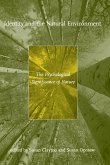Ecological restoration is the process of repairing human damage to ecosystems. It involves reintroducing missing plants and animals, rebuilding soils, eliminating hazardous substances, ripping up roads, and returning natural processes such as fire and flooding to places that thrive on their regular occurrence. Thousands of restoration projects take place in North America every year. In Nature by Design, Eric Higgs argues that profound philosophical and cultural shifts accompany these projects. He explores the ethical and philosophical bases of restoration and the question of what constitutes good ecological restoration. Higgs explains how and why the restoration movement came about, where it fits into the array of approaches to human relationships with the land, and how it might be used to secure a sustainable future. Some environmental philosophers and activists worry that restoration will dilute preservation and conservation efforts and lead to an even deeper technological attitude toward nature. They ask whether even well-conceived restoration projects are in fact just expressions of human will. Higgs prefaces his responses to such concerns by distinguishing among several types of ecological restoration. He also describes a growing gulf between professionals and amateurs. Higgs finds much merit in criticism about technological restoration projects, which can cause more damage than they undo. These projects often ignore the fact that changing one thing in a complex system can change the whole system. For restoration projects to be successful, Higgs argues, people at the community level must be engaged. These focal restorations bring communities together, helping volunteers develop a dedication to place and encouraging democracy.
Hinweis: Dieser Artikel kann nur an eine deutsche Lieferadresse ausgeliefert werden.
Hinweis: Dieser Artikel kann nur an eine deutsche Lieferadresse ausgeliefert werden.








